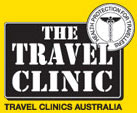Despite previous beliefs, the elderly traveller has an overall mortality risk that is similar to that at home.
Things to consider when travelling include:
- A complete medical examination prior to travel. This should include a medication review as well as an assessment of their general fitness for the particular journey.
- Be up to date on routine vaccinations, with particular attention to influenza and pneumonia vaccination.
- Increased susceptibility to temperature change and malaria – avoid excessive sun and strenuous activity, plan for frequent rests, access air-conditioned rooms, drink more fluids, wear loose clothing and have cool baths / showers.
- Increased susceptibility to dehydration and fluid and electrolyte imbalance from traveller’s diarrhoea – take medications and clearly written advice on early self treatment as per The Traveller’s Pocket Medical Guide and International Certificate of Vaccination.
- Constipation is a frequent problem at all ages, but worse with dehydration and immobility as with prolonged travel – pack favourite medication in the first aid kit. In cool climates, there is increase sensitivity to hypothermia- layer clothing and protect the head and extremities.
Other recommendations include:
- Dental and optometric review
- Travel health insurance with pre-existing illness cover
- Luggage with built in wheels may save back injuries as well as exhaustion
- A spare pair of glasses, lens prescription and extra medications should be packed along with a relevant medical ‘first aid’ kit
- A doctor’s letter detailing a list of relevant medical conditions, a copy of a recent ECG, current generic medications, and allergies
- A list of medical contacts in the area to be visited


